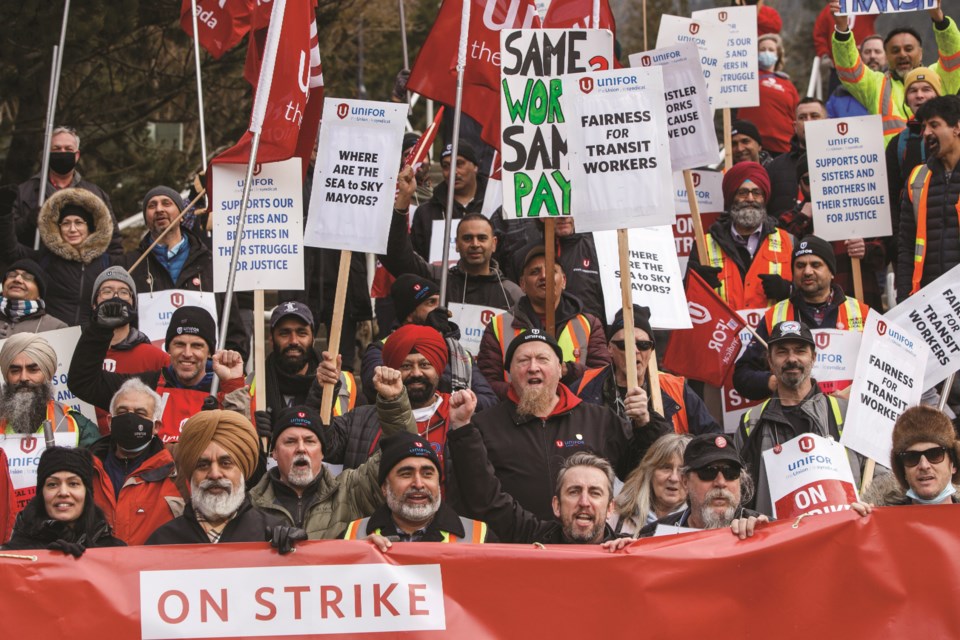Negotiations are set to resume this week between the union representing striking transit workers and their employers more than three weeks after the strike that shut down transit services across the Sea to Sky began.
Representatives for both Unifor and Pacific Western Transportation (PWT) confirmed they would be back at the bargaining table Thursday, Feb. 24. No talks have taken place since the job action began Jan. 29.
“We’re hopeful that significant progress towards a reasonable deal can be made because we’re very much aware of and sensitive to the challenges this disruption has caused for so many in the region,” said a spokesperson for PWT in an email. PWT is the parent company of Whistler Transit and Squamish’s Diversified Transportation, which are contracted by BC Transit to deliver transit services in the Sea to Sky.
The main sticking points for the union concern wages, benefits and job security, particularly in light of the high cost of living in the corridor. Unifor has contended that drivers make anywhere from $3 to $5 less than their counterparts in Vancouver and Victoria, and said 38 per cent of the unit remains without benefits.
“We’ve indicated all along that we want to see a path to dealing with these disparities. But you can’t negotiate a path to dealing with it if you don’t recognize that the disparities exist and that they are real and they are valid,” said Gavin McGarrigle, Unifor’s western regional director.
PWT held off on commenting publicly about the strike until last week, partly out of respect for the bargaining process and partly because it requires BC Transit approval to issue a statement. (Notably, BC Transit has held off on commenting itself, referring all media requests to its private contractors.) But the company sent a statement to Pique on Feb. 21 in the hopes of dispelling what it sees as “misleading and inaccurate information” around its current wage scale and compensation. “We cannot comment on any specifics of either party’s bargaining positions, [but] we encourage anyone interested to seek out the facts on wage scales, as it is all public information.”
According to the five-year collective agreement that was previously in place between Unifor and Whistler Transit, a new driver with no experience in April 2019 would have had a base hourly pay rate of $27.92, which increased by a dollar with every 600 driving hours accumulated, to a maximum rate of $31.92. A recent job posting for a BC Transit operator in Victoria, meanwhile, lists the pay scale ranging from $21.77 after the initial training period to a maximum of $33.18 after five years of service.
PWT also pushed back against Unifor’s assertion that 38 per cent of the bargaining unit is currently without benefits. While the company wouldn’t say what percentage of workers is not covered, the spokesperson noted PWT offers a group RRSP pension plan, and said all year-round, unionized employees receive full extended health and disability benefits, in addition to a “good portion” of seasonal staff.
Dozens of Sea to Sky transit workers gathered in Whistler on Friday, Feb. 18 for a rally that saw them march from the gondola base to municipal hall, then up and down the Village Stroll. Workers carried signs and banners, with many chanting “one day longer, one day stronger!”
Whistler Mayor Jack Crompton and Squamish Mayor Karen Elliott are seeking a meeting with provincial Minister of Labour Harry Bains to discuss the ongoing strike, according to the Resort Municipality of Whistler.
-With files from Braden Dupuis




